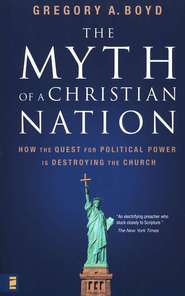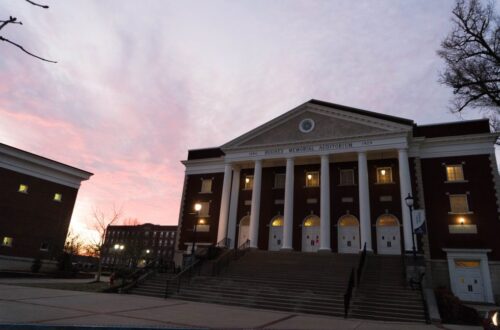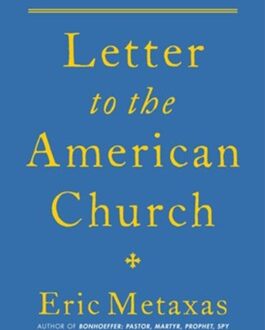‘Myth’ Revisited
 I know, I know — I already reviewed this book. But I’m dissatisfied with my review. It doesn’t capture how deeply The Myth of a Christian Nation resonated with me and challenged me. So I wanted to give it a chance to speak for itself by offering an excerpt.
I know, I know — I already reviewed this book. But I’m dissatisfied with my review. It doesn’t capture how deeply The Myth of a Christian Nation resonated with me and challenged me. So I wanted to give it a chance to speak for itself by offering an excerpt.
Here Greg Boyd is talking about how the “quasi-Christian civil religion” established in our institutions, official discourse and national self-image actually harms the real thing:
A second thing that happens when we fail to distinguish the civil religion of America from the kingdom of God is that we end up wasting precious time and resources defending and tweaking the civil religion — as though doing so had some kingdom value. We strive to keep prayer in the schools, fight for the right to have public prayer before football games, lobby to preserve the phrases “under God” in our Pledge of Allegiance and “in God we trust” on our coins, battle to hold the traditional civil meaning of marriage, and things of the sort — as though winning these fights somehow brings America closer to the kingdom of God. This, we think, is part of what it means to “take America back for God.”
Now, you may or may not agree that preserving the civil religion in this way is good for the culture. Vote your conscience. But can we really believe that tweaking civil religion in these ways actually brings people closer to the kingdom of God, that it helps them become more like Jesus? For example, does anyone really think that allowing for a prayer before social functions is going to help students become kingdom people? Might not such prayer — and the political efforts to defend such prayer — actually be harmful to the kingdom inasmuch as it reinforces the shallow civil religious mindset that sees prayer primarily as a perfunctory religious activity? Might it not be better to teach our kids that true kingdom prayer has nothing to do with perfunctory social functions, that true kingdom prayer cannot be demanded or retracted by social laws and that their job as kingdom warriors is to “pray without ceasing” (I Thess. 5:17) whether the law allows for it to be publicly expressed or not?
In other words, rather than spending time and energy defending and tweaking the civil religion, might it not be in the best interest of the kingdom of God to distance ourselves from the civil religion? Couldn’t one even go so far as to argue that it would be good for the kingdom of God if this civic brand of pseudo-Christianity died altogether? Isn’t one of the primary problems we’re up against in this nation the fact that Christianity has been trivialized by being associated with civic functions? And aren’t we actually reinforcing this trivialization by fighting so vigorously to preserve this pseudo-Christian veneer? Maybe Kierkegaard was right when he stated that the worst form of apostasy the Christian faith can undergo is to have it become simply an aspect of culture. Perhaps it would be a benefit to the advancement of this kingdom if America looked as pagan as it actually is, if the word God wasn’t so trivially sprinkled on our coins, our Pledge of Allegiance, our civic functions, and elsewhere. Then perhaps the word might come to mean something significant to people who genuinely hunger and thirst for the real thing! (From The Myth of a Christian Nation)



7 Comments
Amy @ Hope Is the Word
This resonates with me, too, Janet. As a practically lifelong resident of the Bible Belt, I have witnessed this false sense of righteousness firsthand. It’s hard to explain to other people (Christians) why I don’t think something like prayer in school means what they think it means. In fact, I don’t even try. I know people–sincere Christians–who are very happy to have their children in a certain school system because of many such issues. However, I have a rather jaded view of the same system because I used to be intimately familiar with it. (Sorry–that’s probably more of a personal axe to grind than anything, but it’s related.)
Janet
Thanks for the perspective! I confess that sometimes the Bible Belt looks attractive compared to the “post-Christian Northeast” where I live… but you remind me of the more complex reality.
Amy @ Hope Is the Word
Oh, dear. When I read my comment it sounds so, so, so. . . judgmental. I hope my intention is clear.
Janet
No worries. You don’t sound like someone with a critical spirit, just like someone hungry for the real thing — as I am.
Carolin Migliazzo
This is an important discussion. When Jesus came he changed the whole way God relates to man and to nations. Jesus relates to individuals in the same way God related to the nation of Israel. Jesus did not come to set up a political kingdom. This does not mean we are to abandon culture or politics as individuals or as a church. Bonhoeffer believed that it was the churches’ responsiblity to confront the government when they were allowing the oppression of a people group, such as with the Jews in Nazi Germany. It is to come aside government as a counsellor, not act in its place, as in Medieval times when the Church and State were one. That never seems to work well.
Civil religion may only seem trivial and sentimental if there is a disconnect from its civil practice and its cultural reality. Christianity can also appear trivial when it is only a reflection of culture as well. I do think it is important for the church to engage all aspects of culture, but in a way that reflects concern for the flourishing of humanity as a whole, and not serving its own agenda.
Dennis
Was America from the beginning of European colonization established by Christians? I would argue yes. (Pilgrims, VA, even Spanish) Was it ugly. (killing indigenous people: yes; and some justify that by saying “they were savages.” Doesn’t God extend his hand of grace to ALL? Was the US Constitution established as a Christian document. I would argue no. BUT, take a look at the STATE constitutions and I would argue yes….so it’s not a simple answer. Does history show that when a nation or state is Christian (whatever that might mean) God BLESSES that nation/state more than when a nation or state is NOT Christian? Seems like the USA has been blessed…doesn’t it….BUT, my argument would be that what I think God really blesses is the FREEDOM that is promoted by a nation. HE IS A GOD OF FREEDOM; giving us FREE Will to choose HIM or not….and I think that HE promotes that. So, whether the nation/state is Christian or not, is not the issue: it is rather: does the nation/state endorse freedom to choose? If it does, blessing comes. Just a thought. (the Pilgrims kicked Anne Hutchenson and Rogers Williams out!) Some state constitutions forbade Catholics from voting, human Lifelong Slavery was promoted in the US……..My point: what does it mean to be “Christian?”
Janet
I go by the traditional definition: one who follows Jesus.
In The Myth of a Christian Nation, Greg Boyd defines a Christian this way:
“Though the word has come to mean a multitude of things these days (many of them negative), the word Christian originally suggested one who follows and looks like Christ. By definition, therefore, the distinctive mark of a Christian is that one aspires to think, feel, and act like Christ.”
This book looks at the ways nationalism can subtly warp our understanding of what this means.